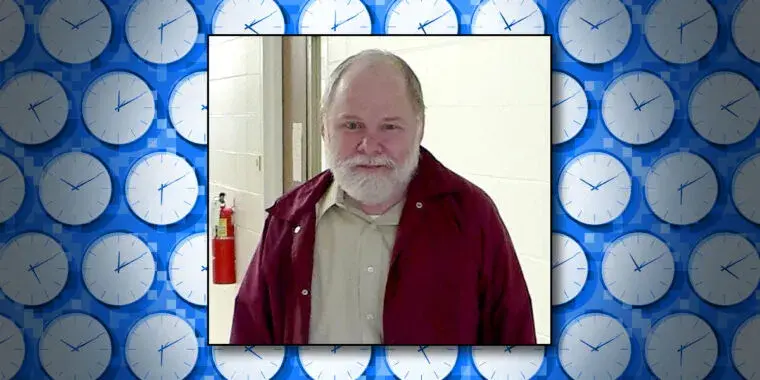When you’re dealing with a bunch of systems that communicate with each other, especially database clusters, having the time synchronized is essential. Without his work the sort of massive clusters of systems we use - deliberately or second-hand - would not be possible. He’s as much a contributor to the modern web as Tim Berners-Lee.
RIP Time Lord
This is an actual OMG moment.
The next Y2K style problem will happen on this date, January 19, at pi o’clock in 2038. I was really hoping he’d get to see that.
He was ironically taken too soon.
It’ll only affect 32bit systems with ancient operating systems storing dates in epoch time.
Not a small number. But nowhere remotely near what Y2K could have been.
Hopefully by the time we need to account for a 64bit rollover, I’ll be comfortably retired. But by that time, proton decay may be a more worrisome problem.
I know. I’m old enough that I worked through the Y2K problem. Not me literally - I was working on a different class of systems - but I literally sat next to COBOL devs who were paid to work on green screens on an IBM midframe for more than half their time to get rid of the two digit date representations on systems operating cellular communications as well as the ones that ran sales and services for a large telecom company. It was my first real job in the industry, and I remember the Gateway type computers sold at Sears with the “Y2K Compatible!” stickers on the front.
My phrasing was both tongue in cheek and a callback to another problem that similarly had some people dreading the end of the world with nuclear reactors running amok and planes crashing from the sky.
In any case, he had a bigger impact on the world than most humans ever will, and going out peacefully at 85 really doesn’t sound all that bad.
It would have just been really funny if his gravestone could have listed his dates as Born June 6 1936 - Died December 13 1901.
Most microcontrollers have only recently made the switch to 32bit, some are still 16bit. Particularly those used for IoT, where they might still need to check dates for TLS and other certs, could go belly up on 2038.
With 14 more years of IoT creep, it might as well have more impact than Y2K, like “sorry Dave, I can’t open the front door, your key won’t be valid for another 136 years”.
Most microcontrollers also don’t need wall clock, monotonous time is sufficient. uint32_max counting in seconds gets you 136 years of uptime before the thing wraps which exceeds lifetime, in milliseconds it’s 50 days which is well within the warranty window.
And, no, 64bit time_t is generally not an issue for 32-bit platforms: Those upper bits only get touched once every 136 years. OS vendors did step up and change stuff so everything that gets produced now should be fine. And don’t even start complaining about memory budget while those things are talking json.
in milliseconds it’s 50 days which is well within the warranty window.
LOL. Stuff like that reminds me how great we have it in the EU, where warranty is 2 years minimum. 🇪🇺😁
Anyway, I’d mostly worry about “really smart” electric engineers rolling out their own time and crypto functions from scratch, because “trust me, I’m an engineer”.
I guess it was
(•_•)
( •_•)>⌐■-■
(⌐■_■)
his time
YEAAAAAAAAAAAAAAAAAAAAH
May our clocks remain synced in his memory.
Rest easy, Dave. And thank you. 💛
o7
This is fascinating because I was reading an article specifically concerned with losing his expertise. Let’s see if I can find it.
I’d be interested in finding out if Harlan Stenn ever finished the paper Mills was putting together about an updated NTP.
We do now have PTP, which has several big improvements. But it’s a lot more involved to set up.
only a few people appear to be both capable and willing to oversee the critical yet overlooked software
I would be willing to become capable… for a fee.
(now, less, or more, seriously, what’s going on with the coördination in that article?)
RIP to a legend
deleted by creator
It’s a protocol named NTP. If you want to say “the ___ protocol”, you can say “the network time protocol” or “the NTP protocol”. Both are correct, even if the latter is technically redundant. You would sound really weird if you insisted on saying “the NTP”. Let’s not bring the worst parts of reddit to the fediverse. Needlessly pedantic is something we can move beyond.
Thank you!
I mean, this is obviously written for a layperson. It’s worded this way because most people don’t know what “NTP” means but they have a vague idea of what a “protocol” is for computer networking.
I mean, I would assume this is pretty common for less-well-known acronyms.
I give you PIN number and ATM machine
nobody says those that way in real life. I only hear people say “I went to the ATM” “I forgot my PIN”
Only people who no longer pin stuff to a pin board would say just pin for a PIN number… and if those are already majority, then RIP Pinterest.
PIN number is pretty ubiquitous
“LED diode”
No, that’s him. Arguably the father of modern computer time.
I expected a longer beard.
What I also love about NTP is that its port (123) is open both ways on most networks, even the most locked down ones, so it’s a good place to hide VPN traffic.
Wow. Sort of feels like the inventor of time just died.
🤖 I’m a bot that provides automatic summaries for articles:
Click here to see the summary
On Thursday, Internet pioneer Vint Cerf announced that Dr. David L. Mills, the inventor of Network Time Protocol (NTP), died peacefully at age 85 on January 17, 2024.
The announcement came in a post on the Internet Society mailing list after Cerf was informed of David’s death by Mills’ daughter, Leigh.
In a digital environment where computers and servers are located all over the world, each with its own internal clock, there’s a significant need for a standardized and accurate timekeeping system.
In the 1970s, during his tenure at COMSAT and involvement with ARPANET (the precursor to the Internet), Mills first identified the need for synchronized time across computer networks.
As detailed in an excellent 2022 New Yorker profile by Nate Hopper, Mills faced significant challenges in maintaining and evolving the protocol, especially as the Internet grew in scale and complexity.
His work highlighted the often under-appreciated role of key open source software developers (a topic explored quite well in a 2020 xkcd comic).
Saved 65% of original text.















